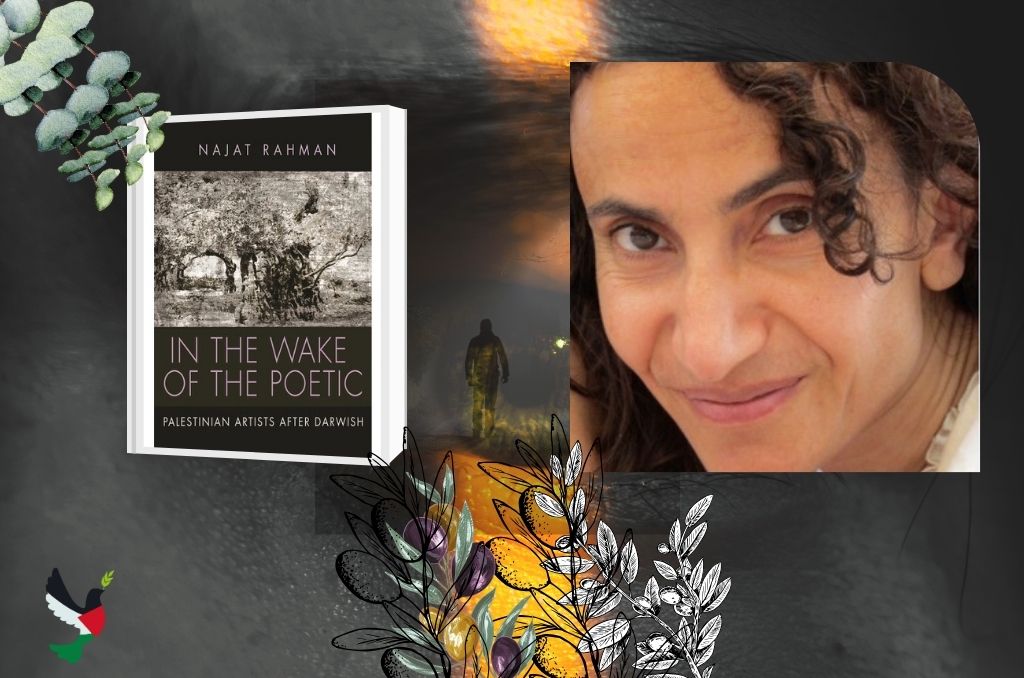
Heralding a new period of creativity, In the Wake of Poetic explores the aesthetics of Palestinian cultural expression in the last two decades. As it increasingly gains a significant presence on the international scene, much of Palestinian art owes a debt to Mahmoud Darwish, one of the finest contemporary poets, and to Palestinian writers of his generation.
Najat Rahman, scholar and author of In the Wake of the Poetic maps the immense influence of Darwish’s poetry on a new generation of performance artists, visual artists, spoken-word poets, and musicians.
Through an examination of selected works by key artists – such as Suheir Hammad, Ghassan Zaqtan, Elia Suleiman, Mona Hatoum, Sharif Waked, and others – Rahman articulates an aesthetic founded on loss, dispersion, dispossession, and transformation. It interrupts the dominant regime, constituting acts of dissent and intervention. It reinscribes belonging and is oriented toward solidarity and the future.
This innovative wave of experimentation transforms our understanding of the national through the diasporic and the transnational and offers a profound meditation on identity.
Najat Rahman is professor of comparative literature at the University of Montreal. She is the author of Literary Disinheritance: The Writing of Home in the Work of Mahmoud Darwish and Assia Djebar.
Excerpts of In the Wake of Poetic: Palestinian Artists After Darwish
This is an art of dissent that crosses over political impasses and renders what has been muted and excluded legible and public. Art and politics interrupt the framing of perceptual space, creating differences and challenging consensual forms of power, where art allows the subject to appear where politics allows excluded speech to emerge. This art compels a response and calls for reflection on the act of interpretation at a time of devastation. It is an intervention in the present, a critical act of listening and dissension. (page 29)
Praise for the book
Director’s Choice for Fall 2015
“In the Wake of the Poetic links literary criticism with Palestinian reality to give a fascinating panoramic view of Palestinian artistic production in the past two decades.” The Jordan Times
“An intensely insightful reading of diverse transnational forms of Palestinian nationhood in Palestinian art, in hip hop, spoken word poetry, film, music, and visual arts. Najat Rahman’s In the Wake of the Poetic: Palestinian Artists After Darwish is a compelling accomplishment,” said Mary N. Layoun, Emerita professor of Comparative Literature at the University of Wisconsin, Madison.
“The first substantial study to trace the impact of Arabic poetry on proliferating art forms and to see the connections between them, as though the works produced In the Wake of the Poetic seamlessly come out of the ones before it. ” said Dina Matar, senior lecturer in Arab media and political communication at SOAS, University of London.






